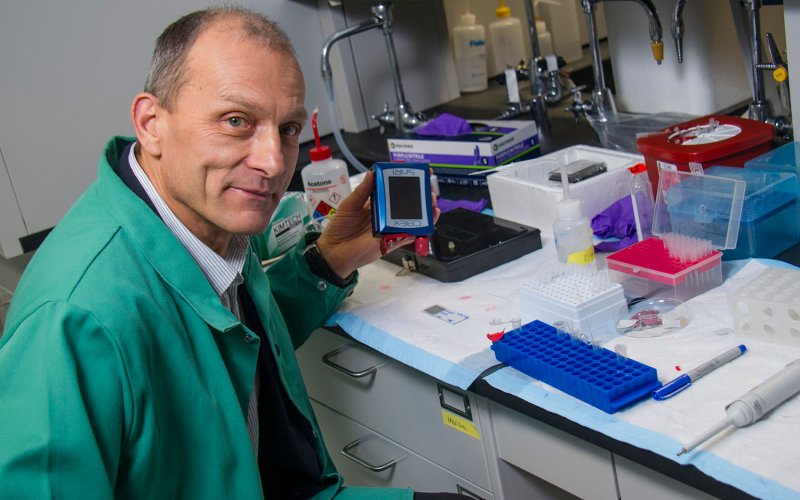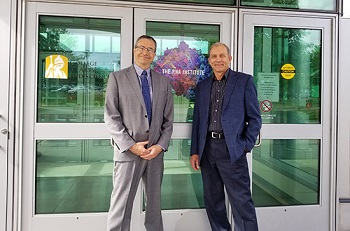Forensic Chemist’s Start-Up Receives Support from the National Science Foundation

ALBANY, N.Y. (April 29, 2021) – Department of Chemistry Professor Igor Lednev is now one step closer to helping law enforcement catch violent criminals through new federal support from the National Science Foundation (NSF).
SupreMEtric LLC, co-founded by Lednev, has received a highly competitive NSF Small Business Technology Transfer (STTR) grant. It will be used to advance the commercialization of his novel laser-based technology, which combines Raman spectroscopy and advanced statistics to identify body fluid traces at crime scenes.
The one-year NSF STTR grant includes $256,000 in support for a Phase I proof-of-concept phase. The program funds around 400 companies each year.
“There is currently a big gap that exists between applied research and technology commercialization,” said Lednev. “The NSF’s STTR program is helping to close this gap by funding start-up companies like ours. We’re grateful for their support.”
Laser Forensics
The Lednev lab, located inside The RNA Institute, has pioneered the use of Raman spectroscopy for forensic purposes over the last decade. His team’s research has been continuously funded through the National Institute of Justice (NIJ), published over 60 articles in peer-reviewed journals on the topic, and received three U.S. patents.

SupreMEtric LLC was founded in 2019 with support from the SUNY Technology Accelerator Fund. Lednev is now collaborating with Ray Wickenheiser, director of the New York State Police Crime Lab System, along with other practitioners in the field, to turn his technology into a usable product for law enforcement agencies and forensic crime labs.
The STTR grant will be used to create a “desktop version” of Lednev’s technology, which can be applied in a crime lab setting. By shining a laser light on the sample, the technology non-destructively helps determine the origin of a biological stain by assigning it to a specific body fluid, with close to 100 percent accuracy.
Lednev also plans to develop a portable instrument, which could be used at the scene of crime, as a next-generation item in its line of company products.
“Receiving this STTR grant would not be possible without strong support from the Innovation & Partnerships Office of SUNY’s Research Foundation, along with UAlbany’s Division for Research and Office of Innovation Development and Commercialization,” Lednev said. “It’s exciting to see our hard work start to come to fruition. We look forward to our forensic technology soon being used as an integral part of crime scene investigations across the nation.”
Lednev worked closely on the STTR grant proposal with Kirk Macolini, president of InteliSpark, a hands-on business development consulting firm, Hannah Hage, company’s CEO and Marisia Fikiet, a NYS Police forensic scientist and recent UAlbany chemistry graduate who is a part-time employee at SupreMEtric LLC.




